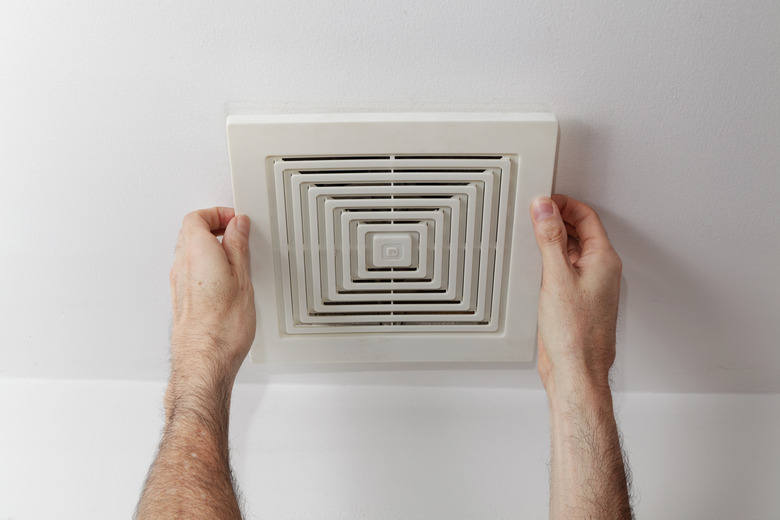Advantages And Disadvantages Of Mechanical Ventilation Systems
We may receive a commission on purchases made from links.
Effective home ventilation systems ensure that the air in your home is fresh and healthy to breathe. To keep a continuous supply of fresh air circulating, you need a well-operating mechanical home ventilation system. In today's tightly built, well-insulated homes, mechanical ventilation systems are necessary to ensure fresh air. Before adding additional ventilation to your home, it helps to review the advantages and disadvantages of mechanical ventilation systems.
Mechanical Home Ventilation Systems
Mechanical
Home Ventilation Systems
Also known as forced ventilation, mechanical ventilation refers to air driven by mechanical means in a desired direction. This is accomplished with devices like ceiling and standalone fans and vented exhaust fans.
Mechanical ventilation systems are necessary in rooms where humidity and odors tend to build up. This includes exhaust fans in bathrooms, kitchens and attics. Ventilation systems are also useful in other areas of the home, such as a ceiling fan in the living room, den or bedroom.
In bathrooms, mechanical ventilation is generally installed in or near the ceiling to remove moist air that could build up due to bathing or showering. A variety of bathroom exhaust fans are available at Home Depot, Walmart and Amazon.
Mechanical ventilation is found in the form of vented hood exhaust fans over kitchen stovetops. This helps ensure that food odors that result from cooking are forced out of the home, as well as water vapors. You can find many range hood exhaust fan options at Amazon, Home Depot and Walmart.
Mechanical ventilation systems are also installed in attics to expel stale indoor air that may create moisture buildup. This helps reduce the chances of mold in the attic or home in general. Such fans may also be installed to remove hot air.
Advantages of Home Ventilation Systems
Advantages of Home Ventilation Systems
In addition to replacing stale air with fresh oxygenated air, mechanical ventilation systems serve a variety of other functions. They help regulate the temperature in your home. For instance, an attic fan can pull hot air out of your home, resulting in cooler temperatures within your living space.
Mechanical home ventilation systems also help to moderate humidity. This is the case with exhaust fans in the kitchen, bathroom and anywhere else where humidity may build up, such as the laundry area.
Odors are greatly reduced with mechanical ventilation. Fresh air is exchanged with internal air. This results in the reduction of the smell of smoke and cooked foods. Additionally, mechanical ventilation can help improve safety by removing air containing dust, bacteria and trace amounts of carbon dioxide.
Forced air mechanical ventilation also makes your home interior more comfortable. For instance, the air movement created by a ceiling or standalone fan can be refreshing.
Disadvantages of Home Ventilation Systems
Disadvantages
of Home Ventilation Systems
While ventilation is a positive in most homes, consider that the more you ventilate your home, the harder your heating and cooling system must work. Bringing the outdoor air indoors can increase the work required of your HVAC system.
Because of the airtight nature of many of today's homes, mechanical ventilation can also depressurize your home. This can cause issues with appliances that vent naturally, such as a furnace and water heater. Rather than expelling the harmful gasses outdoors that are created when your water heater and furnace operate, the gases may linger in your indoor environment. This creates unhealthy, even dangerous, air.
Seek Expert Home Ventilation Assistance
Seek
Expert Home Ventilation Assistance
The best indoor ventilation systems have a good balance of incoming and outgoing air. Given the complexities of creating a balanced mechanical ventilation system, it's often a good idea to have a professional install exhaust fans in the bathroom and kitchen. Such systems must be ducted correctly so that the air vents properly.
